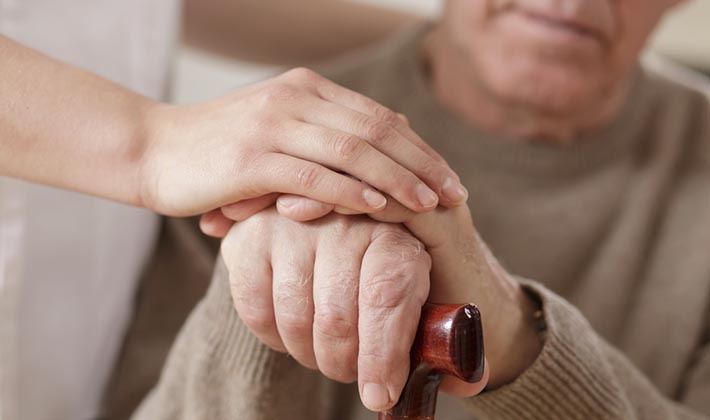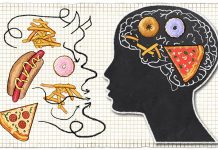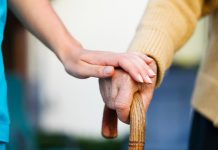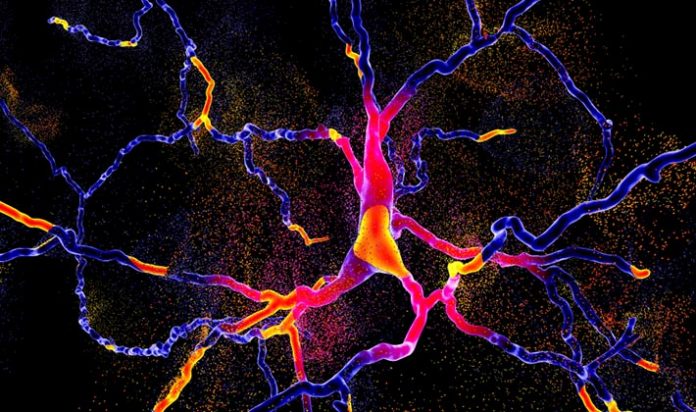It seems like everyone is talking about age-related brain diseases like Parkinson’s and Alzheimer’s these days. Are these diseases really more prevalent than ever before? Is everyone over a certain age at a greater risk? We have the 411 on what is causing the spike in these diseases – as well as some helpful info and how to protect yourself.
Alzheimer’s Disease and Old Age
The National Institute of Health defines Alzheimer’s disease as “an irreversible, progressive brain disorder that slowly destroys memory and thinking skills and, eventually, the ability to carry out the simplest tasks.” Forgetting where you put the remote or walking into the next room and forgetting what you came for aren’t the same thing as forgetting how to bathe yourself or how to use the toilet. When you can no longer take care of yourself because your brain can’t remember how, that’s Alzheimer’s.
Most people who are susceptible to Alzheimer’s won’t develop symptoms until their mid-60s. There are some unfortunate people who either have a genetic predisposition or engage in unhealthy diet and lifestyle habits (or both!) who could start exhibiting symptoms as early as their 30s. If you know there’s a history of Alzheimer’s in your family, if you don’t eat the healthiest diet or exercise frequently, or if all of the above apply to you, it might be a good idea to talk to your doctor about your risk factors and what to do about them.
Parkinson’s Disease

The Parkinson’s Foundation defines Parkinson’s disease as “a neurodegenerative disorder that affects predominantly dopamine-producing neurons in a specific area of the brain called the substantia nigra.” They go on to add that it is a progressive disease with symptoms that develop slowly over many years, and can include:
- Tremors, even while at rest
- Problems with balance and gait
- Bradykinesia, or a slowness of movement
- Limb rigidity
Those are the physical (“movement”) symptoms of Parkinson’s. PD also has non-movement symptoms, such as:
- Constipation
- Cognitive decline or dementia
- Loss of appetite and under-eating
- Loss of sense of taste or smell
- Pain
- Mood dysregulation, including anxiety, depression, and irritability
- Sleep disorders
- Sexual dysfunction
- Increased urinary frequency and incontinence
- Vision problems
Medical experts aren’t quite sure what causes Parkinson’s. There are certain gene mutations which may make a person more vulnerable to developing Parkinson’s disease, but not everyone with the Parkinson’s gene goes on to develop the disorder. There are also instances where environmental factors can cause someone to suffer Parkinson’s, even though they don’t have a gene for it. Furthermore, sometimes genetics and environment both play a role in whether or not Parkinson’s will become a problem for someone as they age. Parkinson’s disease is poorly understood and much more research needs to be done in order to preserve the health and wellness of seniors as they age.
Why Seniors Are More Vulnerable Than Ever Before – and What You Can Do About It!
When it comes to Parkinson’s, external factors like pesticides and head injuries will make you more vulnerable. Buy as much organic food from the produce section as you can, or make sure you thoroughly wash your fruits and vegetables before eating them. While it should go without saying, try to avoid head injuries. We understand it’s easier said than done, but anything you can do to improve your motor coordination to avoid accidental trips and falls will help.
With Alzheimer’s, genetic factors aside, there are lots of things you can do to protect your brain from losing your memory too quickly. Those include:
- Getting more exercise – exercise improve cardiovascular health, which in turn sends more blood flow to the brain. This helps preserve your neurons and prevents shrinkage of the memory centers of the brain
- Eating a healthier diet – the more processed food you eat, the less likely it is that you’ll develop a build-up of plaque or expose yourself to toxic substances which can damage your neurons and contribute towards memory loss
- Get more sleep – especially REM sleep. REM sleep is the only stage asleep where your brain focuses exclusively on consolidating and solidifying your memories. The more REM sleep you lose, the more memories you lose and the harder it is to remember things – especially as you age.
Aging isn’t easy. The decline in quality of life is probably one of the most unfortunate things about it. And if your brain starts aging faster than your body, it can make things that much worse. But thanks to modern medicine and some simple diet and lifestyle changes, you can reduce your risk for age-related brain diseases and improve your quality of life.






















































